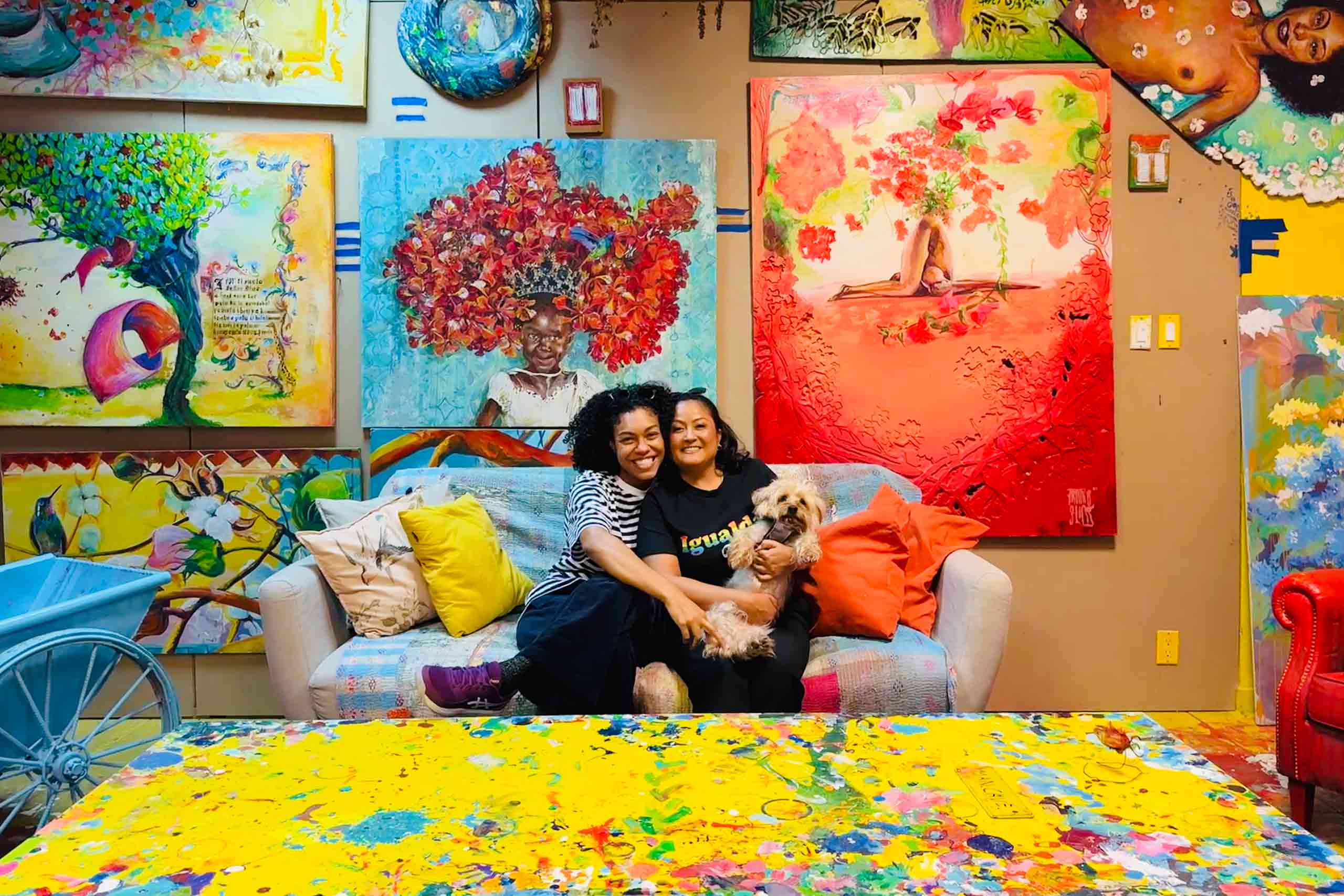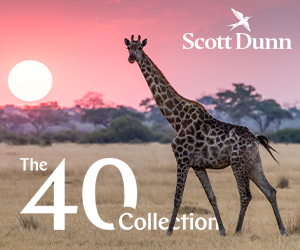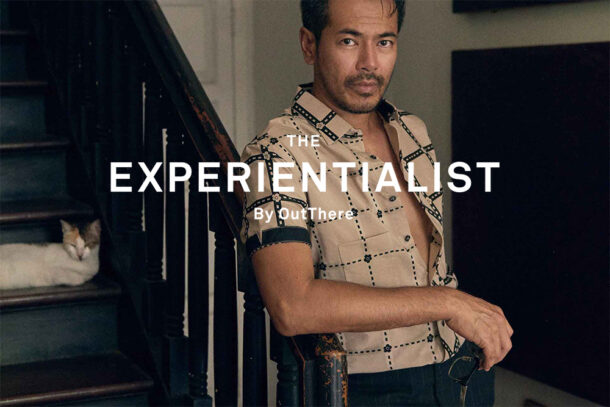After moving to Curaçao in 2005 and feeling unseen in its underground, male-dominated queer scene, Janice Tjon Sien Kie co-founded the Curaçao Gayplasa Foundation to promote LGBTQ+ visibility. Through events, media outreach and a bold welcome for rerouted LGBTQ+ cruises, she helped build what became Curaçao Pride. Her fight deepened in 2015 when she led a small legal team that, after years of political inaction, challenged the government on same-sex marriage – eventually winning in the Supreme Court. Despite backlash and cultural resistance, her resilience never wavered, and she hopes to inspire future changemakers and prove that even small islands can make big changes.
Janice Tjon Sien Kie is a trailblazer in the Caribbean’s LGBTQ+ movement, having led the landmark case that brought marriage equality before the courts of Curaçao – a historic milestone for queer rights in the region. As Chair of Human Rights Caribbean and co-founder of both Curaçao GayPlasa and Igualdat Kòrsou, she stands at the forefront of advocacy on the island, championing visibility, equality and lasting change.
A strategist, activist and entrepreneur, Janice’s latest venture, Outcaribbean, is the first travel media platform of its kind – created to empower LGBTQ+ travellers with culturally aware, safety-conscious and community-driven experiences across the Caribbean. A former national beach tennis player, Janice now plays padel and lives in Curaçao with her partner Beatriz, dog Chivas and cat Pantera. A passionate foodie and curious explorer, she continues to discover new places, flavours and perspectives – all while working to build a more equal world, one journey at a time.
Janice Tjon Sien Kie’s story is one of deeply personal transformation into powerful LGBTQ+ activism in Curaçao. Her advocacy was never just legal; it was cultural, emotional and visionary – about changing hearts, not just laws. She draws strength from her upbringing, her partner and role models who value justice and authenticity. Her core message is clear: lasting change requires heart, strategy, and tenacity – especially in small island nations where visibility, representation and solidarity can spark revolutions.
You’ve been at the forefront of LGBTQ+ rights in Curaçao for many years. Can you take us back to the moment when you realised that advocacy would become a personal mission?
Advocacy wasn’t something I planned – it began out of personal necessity. I’m from Suriname and had been studying and living in the Netherlands, in both Rotterdam and Amsterdam, where LGBTQ+ spaces were open and diverse. When I moved to Curaçao in 2005, I noticed the queer scene was underground and largely catered to gay men. I didn’t feel represented, so I joined the group organising events to help make them more inclusive, especially for lesbian women.
Eventually, only one other person and I remained… and we founded the Curaçao Gayplasa Foundation to promote LGBTQ+ visibility and acceptance. We hosted events in mainstream venues and used mainstream media to reach a broader audience. One of our biggest successes was Get Wet Weekend, which laid the groundwork for what is now Curaçao Pride. With support from the tourism board, we also attracted major queer media outlets like Out, Curve and The Advocate, along with a growing number of queer visitors to the island.
A key moment came when the RSVP Atlantis gay cruise was rejected by the Cayman Islands. With support from the Curaçao Tourism Board, the ship was rerouted to our island, and we organised a big welcome party. Since then, Curaçao has remained on their itinerary. Olivia Travel has also visited twice and we proudly hosted welcoming events for them too.
What started as a personal need evolved into a mission to make Curaçao a more inclusive and visible place for the LGBTQ+ community.
Who were your role models growing up, and who do you draw strength from today?
When I was young, my father’s hotel was destroyed during the civil war in Suriname. After my parents divorced, I was raised by a single mother who shaped my understanding of strength, resilience and values. The challenges they faced taught me how to be resourceful – and helped define what I wanted, and didn’t want, for my own life. That past lit a fire in me to aim higher and dream bigger.
I’ve always admired people who are committed to greatness, justice and authenticity. They remind me that it’s okay to want more and to work for it. Over the years, I’ve had many role models. At this stage in my life, Emme Grede and Uwern Jong are huge inspirations. And most of all, my partner Beatriz Liberia is incredibly important. She’s both my mirror and my love.
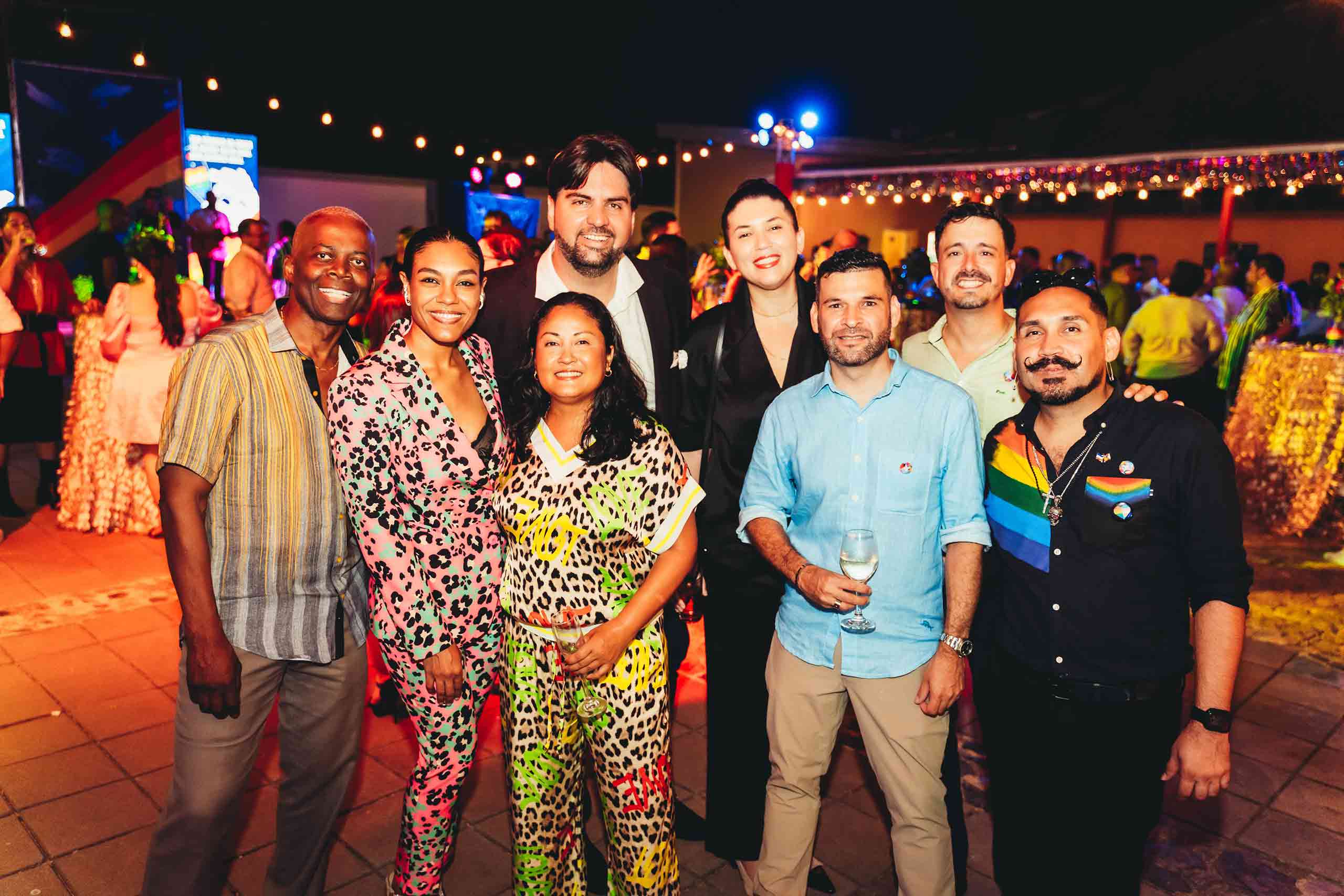
What personal experiences or challenges shaped your path as an LGBTQ+ activist?
In 2012, we formed a queer steering committee to work towards equality and acceptance in a serious way. But from the beginning, the group was too large, and the meetings often went in circles. It felt like there were too many captains on one ship – and unfortunately, the ship sank before it even set sail. At one point, they called me the corporate activist, but for me, strategy and structure were essential tools to drive lasting change. Eventually, the group dissolved before we could make any meaningful progress.
Three years later, just three of us regrouped with a new focus: fighting for marriage equality through the political process. We kept things small and strategic and eventually formed Igualdat Kòrsou (Equality Curaçao), a collective of eight queer individuals, lawyers and committed allies that we carefully selected.
We created impactful awareness campaigns. In 2018, we drafted a marriage equality bill and presented it during Curaçao Pride to two members of Parliament. But despite our efforts, the government remained passive. It never reached the lawmaking process.
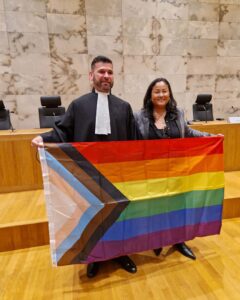
Two years went by, and I felt disrespected. So I decided to take matters into my own hands. I moved forward and contacted David Wever, a queer lawyer and co-member of Igualdat Kòrsou, and together, we prepared the legal case against the Government of Curaçao to legalise same-sex marriage.
At the time, I was serving on the board of Human Rights Caribbean, a foundation originally created to support Venezuelan refugees. I asked the board if we could use the foundation to file the case, and they agreed. I took on the personal risk, signing a contract that made me financially liable for the entire legal challenge. It was a leap of faith, but I believed everything would work out.
We chose to keep the case quiet for a full year because I felt that informing others would lead to discussions, the need for approval and the pressure to explain every step. We needed the freedom to make decisions without interference, compromise or being pulled in different directions. And I didn’t want another ship to sink – lesson learned.
Later on, Igualdat Kòrsou played an important role in social outreach and community communication, helping to build understanding and support, and addressing urgent social issues.
We imagine that achieving marriage equality in Curaçao wasn’t just a legal battle but also a cultural and social one. What were the most challenging parts of that journey, and what kept you going?
One of the hardest parts of the journey was the backlash from the community, especially from some churches and politicians. At one point, a politician submitted a draft bill to parliament to amend the constitution to block our rights. Thankfully, we were able to prevent it from making it into the lawmaking process.
Once our team became publicly associated with the fight, we started getting recognised in the supermarket or on the street. In a small society where anonymity doesn’t exist, that kind of exposure was uncomfortable.
To make things worse, some people dismissed our fight as a “Dutch agenda”, using the colonisation narrative to ignore the lived realities of LGBTQ+ people in Curaçao. They overlooked the years of work by local activists and painted our victory as something imposed, rather than earned.
What kept me going? My fighting spirit, knowing I was in it with a great team and the fact that we were fighting for something bigger than ourselves. No grit, no pearl.
Can you describe a moment when you felt that the work truly mattered?
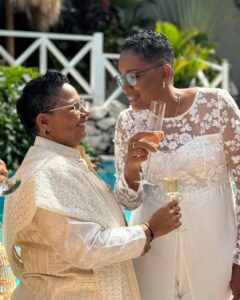
The fact that we were allowed to personally plead the case before the Supreme Court – something that happens in only about 3% of cases – showed how seriously the Court regarded this matter. It was a clear sign that we were doing important work.
We’ve already seen the real-life impact of marriage equality in Curaçao. The civil servant pension fund, for example, has paid out widows’ pensions retrospectively, finally recognising same-sex partners who had been excluded for so long.
And then there are the stories that stay with you. Like the lesbian couple living in the Netherlands who can now legally marry in Curaçao. One of their fathers is too ill to fly, so before, he wouldn’t have been able to attend. Now, the wedding can happen on the island, and he’ll be there. The ceremony is still to come, but the fact that it can happen is already a victory.
Advocacy can be hard and exhausting. What have been some of the sacrifices – not just for you but for the community – and also the unexpected joys, of standing up for what’s right in a society?
We had to put up with harassment and backlash. Sometimes we had to stay quiet when we wanted to speak up, choose our battles and be strategic. We had to swallow things we shouldn’t have had to. It took a toll on our energy, our safety and our sense of peace.
But there were also incredible, unexpected joys. One of the most unforgettable moments was at the Supreme Court. The room was filled with tension – it felt like a scene from a suspense film. Everyone was holding their breath. And then the verdict came: we had won. The room exploded in applause and tears. Even the judge said, “Wow, I did not expect this”. I had goosebumps. It was the first time I truly felt the community’s gratitude. I felt proud, like a samurai who had won the battle.
Another powerful moment was seeing so many queer people from the diaspora in the Netherlands show up at the Supreme Court to support us. That solidarity was overwhelming. I’ll never forget it. Many told us the ruling gave them hope that they could return to Curaçao and live openly, with dignity and respect. That made it all feel even bigger than us.
Helping organise the first same-sex wedding on the island was another milestone. It was stressful – there had been a public call for protest, so we had to change the venue at the last minute and coordinate police assistance. But on the day itself, seeing the joy on the couple’s faces and their tears of happiness made everything worth it. It felt like the circle had come full. What once felt impossible had become real.
Strange, but after that, I fell into a kind of emptiness. It was like, “What now”? For so long, the fight had given me purpose. When that major milestone was achieved, it felt like there was nothing left to fight for – I didn’t expect that to happen.
How has Curaçao changed since marriage equality became a reality, and what still needs to change? What happens now that “the legal battle is won”?
From an economic perspective, Curaçao is becoming increasingly popular among LGBTQ+ travellers, with group trips and destination weddings already in the works. But economic gains aren’t enough. We must also prioritise comprehensive anti-discrimination laws, expanded awareness campaigns and the creation of safe spaces, especially for youth and trans people.
My hope for the future is simple: that everyone can live freely, equally and happily. As for my legacy, I hope Curaçao’s journey proves that small islands can lead big revolutions. If change is possible here, it can echo across the Caribbean, from Suriname to Sint Maarten and beyond. I want to be remembered not only as someone who made meaningful change happen, but as a builder of impactful, lasting brands that inspire.
Regarding the future of Outcaribbean and Human Rights Caribbean: Human Rights Caribbean remains a volunteer-driven foundation, committed to addressing urgent human rights issues. We’re now exploring how we can support marriage equality efforts in Suriname and Sint Maarten, because the fight extends beyond Curaçao.
Outcaribbean is my long-standing business baby, now finally coming to life. It’s the first travel media platform dedicated to empowering LGBTQ+ travellers with culturally aware, safety-conscious and community-driven experiences across the Caribbean – a region rich in heritage, but still lacking inclusive infrastructure and, in many cases, protective legislation.
Through partnerships and community-led events, Outcaribbean celebrates queer identity while supporting economic growth throughout the region. Right now, I’m fully focused on building this venture. The journey has been more complex than I thought, but I’m all in. The site is in the development phase, and I have just received exciting news that I’ve been selected for the TUI x IGLTA mentorship programme. I’m committed to making Outcaribbean a sustainable, impactful platform.
For younger queer activists, especially those in small island nations, what advice would you give on how to be heard, how to build resilience, and how to lead with compassion and strength?
“Victory belongs to the most tenacious”. I first saw that quote at Roland Garros, and I love it. For queer activists – especially those from small island nations – it captures something essential: we may lack big platforms or endless resources, but we make up for it with heart, grit and relentless courage.
My advice to younger queer leaders is this: don’t just be loud – be smart. Build alliances that cross disciplines. Surround yourself with people who know how systems work: activists, lawyers, civil servants, consultants, storytellers. No one can do it all alone, but when you build a team rooted in strategy and trust, your impact multiplies.
In the Caribbean, the challenges we face are emotional, cultural and tied to colonial legacies, religion and economic inequality. To lead with compassion, we must understand this context. We must listen, speak with clarity and frame our fight for rights as a fight for dignity and shared prosperity. In these communities where survival is often the focus, we have to show how equality uplifts everyone. Equality drives economy.
Resilience isn’t something you’re born with – it’s something you build. You build it by believing in yourself, learning through experience, collaborating with others and keeping the end in mind. Don’t wait for permission. Be bold. Take calculated risks; nothing meaningful happens in your comfort zone.
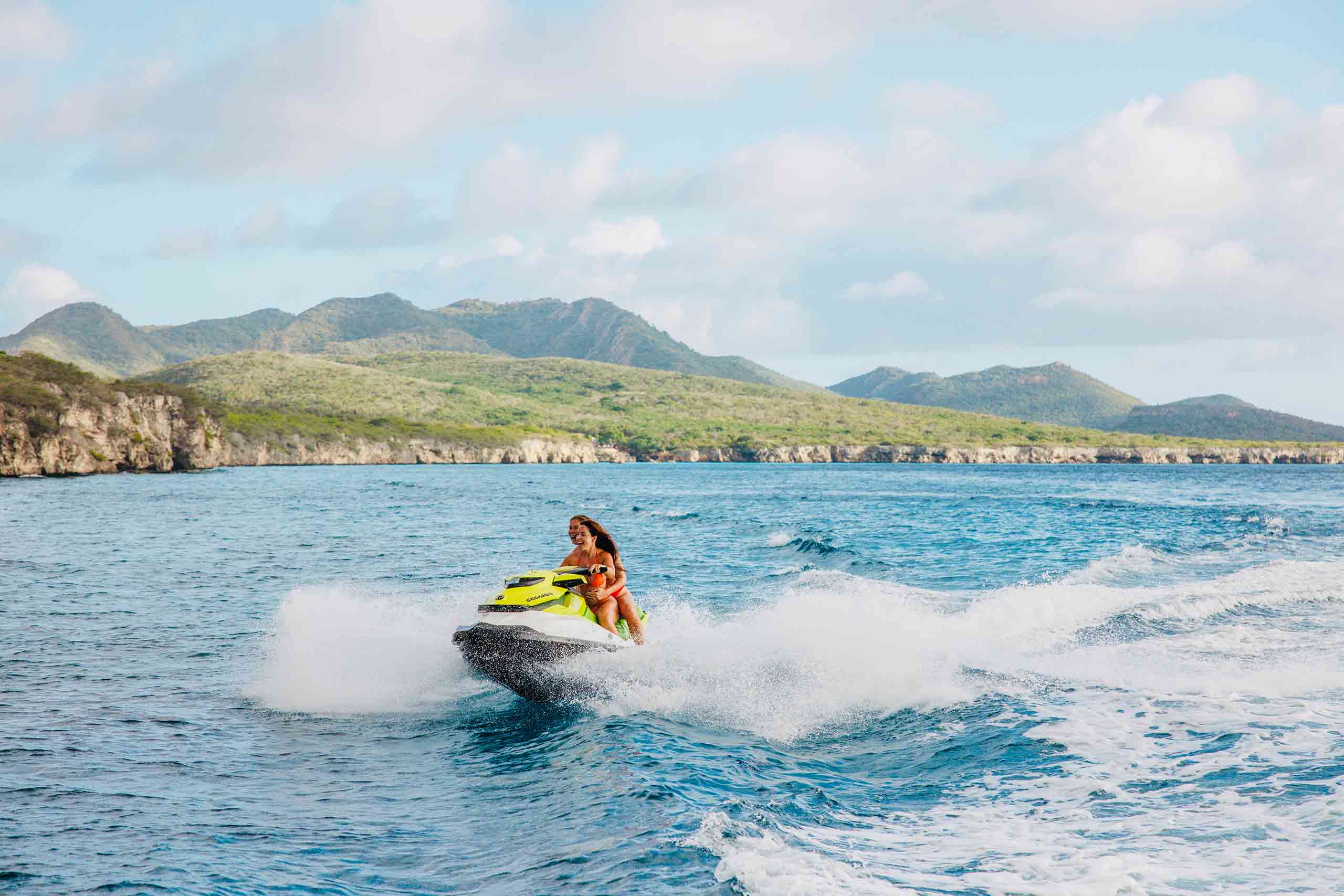
What does Pride mean to you personally? Why does Pride Month matter?
Pride for me is to feel free. Free to be who I am, to love who I love, to walk through the world without fear. I celebrate that by not hiding – by choosing to be visible, even when it’s not always accepted. Pride Month matters because there are still places where our lives are illegal and people are persecuted for being queer. It’s a time to remember that freedom is a daily struggle, and to stand united.
In today’s political climate, where rights are under attack in many countries, Pride is an act of defiance and hope. It’s a reminder that progress is possible, that love wins – even when the odds seem stacked against us. Pride keeps us connected to our history, our community and our future.
Recently, our most popular politician attended his inauguration with his husband – a powerful moment of visibility and self-acceptance, especially since he and his party actively opposed marriage equality by bringing the case to the Supreme Court. I hope he opens this year’s Pride Walk, sending a clear message to the homophobic parts of our society: equality must be lived, supported and proudly celebrated. “Biba i laga biba” – live and let live.
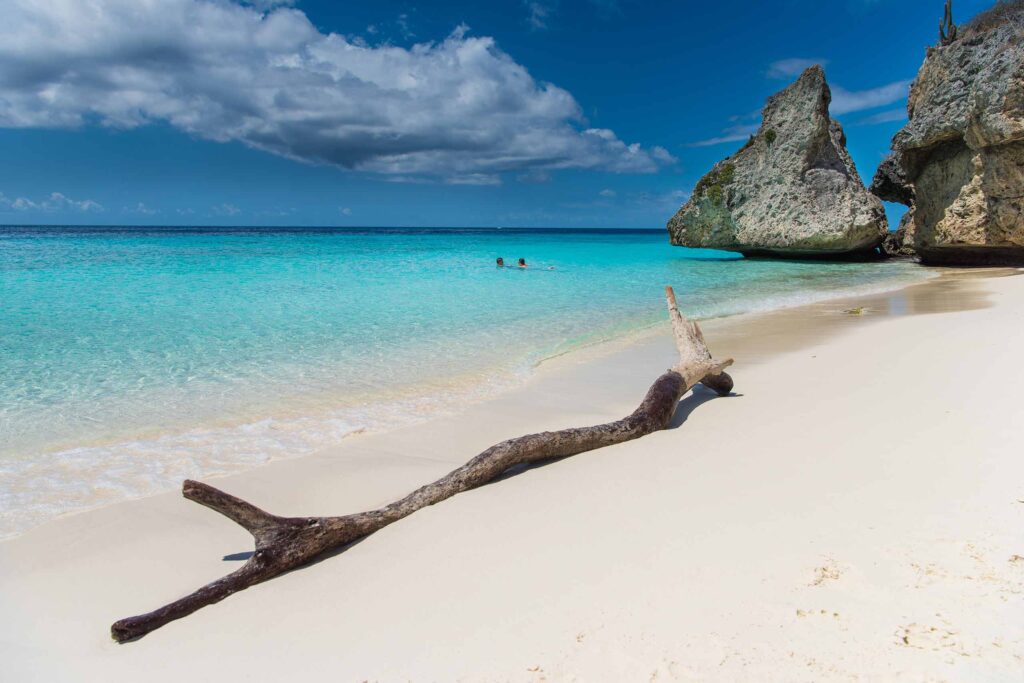
Janice Tjon Sien Kie’s Insider’s Guide to Curacao
Curaçao is more than a Caribbean escape – it’s the Island of Healing, a rare energy vortex where two powerful ley lines intersect, creating a space charged with transformation. This subtle yet potent force, known as Kundalini energy, flows through the land, encouraging clarity, emotional release and spiritual renewal. Healing here feels real, almost tangible.
The island’s identity is shaped by the transatlantic slave trade, the oil industry and offshore finance. Curaçao’s culture blends Afro-Caribbean, Latin American and European influences. Locals speak a rich mix of Dutch, English, Spanish and Papiamentu. The capital, Willemstad – a UNESCO World Heritage site – is known for its colourful colonial era architecture and vibrant character.
Curaçao is also one of the Caribbean’s most inclusive islands, making it a welcoming place for solo female travellers and the LGBTQ+ community. Recognised with the IGLTA (International LGBTQ+ Travel Association) Breakout Destination Award, it continues to champion diversity and equality. Visitors are encouraged to support queer-owned businesses, true allies and local organisations like Human Rights Caribbean.
Though progressive overall, some rural areas may be more traditional, so a little Papiamentu and a lot of respect go a long way. Travellers are also asked to engage with Curaçao mindfully: the island offers so much, and giving back in small, meaningful ways keeps the energy flowing both ways.
Stay
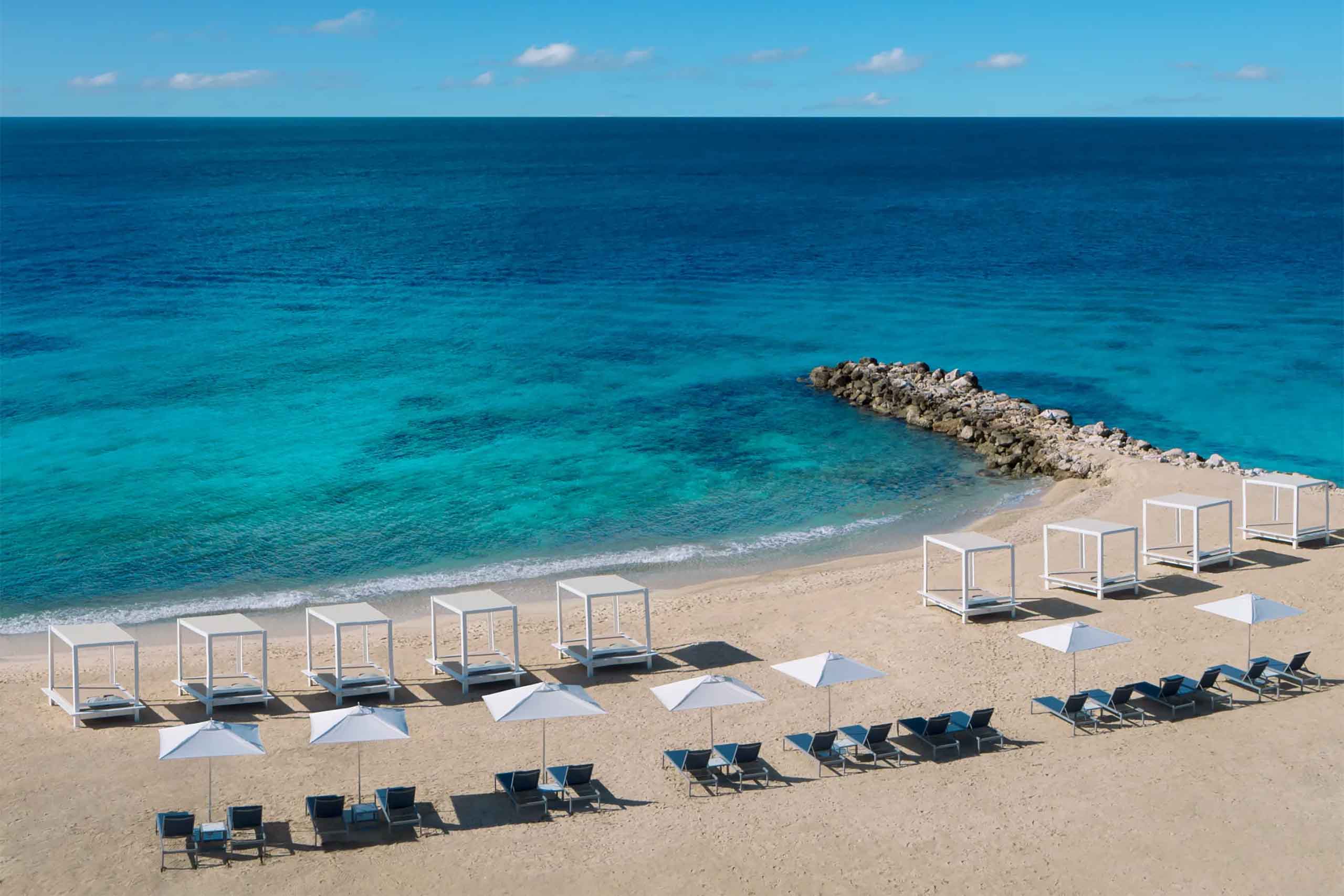
I highly recommend Zoëtry Curaçao (Hyatt). This luxury all-inclusive is a cornerstone of our LGBTQ+ history. Formerly the Floris Suite Hotel, it hosted the iconic Get Wet Weekend and played a foundational role in launching Curaçao Pride. Many meetings for our advocacy work were held in this hotel. When we at Gayplasa stepped back, their team stepped up – growing the event into the celebration it is today and boldly organising the very first Pride Walk through downtown Willemstad.
Though now under new ownership, some of the original team remains. Zoëtry also stands out as the only IGLTA-accredited hotel on the island, reinforcing its long-standing commitment to welcoming and supporting queer travellers.
Renaissance Wind Creek is another strong partner of the queer community. Back in the day, they hosted our welcoming parties for LGBTQ+ cruise ship guests and remain a proud supporter of Curaçao Pride today.
Mangrove Beach Corendon deserves special recognition – not only for its inclusive hospitality but for issuing a press statement in local newspapers last year, signed by its founder, affirming their ongoing support for marriage equality.
And if you’re seeking a luxurious solo escape or a romantic getaway, Baoase remains an exceptional choice.
Eat
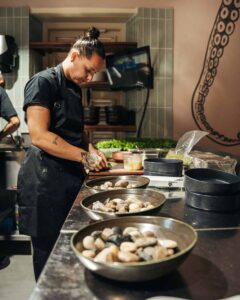
Start in Otrobanda, our vibrant cultural district. There, in Kura Hulanda Village – originally developed by the late Dutch philanthropist and openly gay man Jacob Gelt Dekker – you’ll find Caleo, a beautiful restaurant and cocktail bar. It’s co-owned by my friend and fellow board member Maxime Ringelberg, a queer executive chef who’s made an incredible impact on our culinary scene. She also co-owns MosaCaña, one of the most loved restaurants on the island, known for bold Caribbean flavours and a warm, welcoming atmosphere.
If you’re in the mood for something sweet, visit It’s Better with Chocolate, a queer-owned artisanal chocolate shop that’s just as delightful as it sounds.
Explore
While you’re in Otrobanda, don’t miss the vibrant street art inspired by the Kaya Kaya Street Festival. Co-founded by a proud member of the queer community, the festival has played a leading role in revitalising the neighbourhood. Through Kaya Kaya’s efforts, local and international artists were invited to paint and decorate the buildings, turning the area into a colourful, living gallery. These murals celebrate Curaçaoan identity, Afro-Caribbean heritage and queer visibility. Among the contributors is local artist Francis Sling, known for his striking murals throughout the district. Don’t miss the chance to visit his gallery – it’s one of the island’s most creative and inclusive experiences.
And for those who want to dive deeper into queer history here, I recommend booking a queer culture tour with my other friend Nelly Rosa. Her storytelling brings hidden LGBTQ+ narratives and activism to life in a powerful, personal way.
Pride
Curaçao Pride takes place every year in September/October. Each autumn, Curaçao Pride lights up the island with vibrant colour, pulsating energy and heartfelt celebration. What began as an underground gathering has blossomed into a ten-day festival – complete with beach parties, art exhibitions and the iconic Pride Walk through downtown Willemstad’s UNESCO-listed streets. LGBTQ+ locals and visitors from around the globe join hands in solidarity, dancing beneath rainbow banners and embracing Curaçao’s warm spirit of inclusion.
Beach and exploration
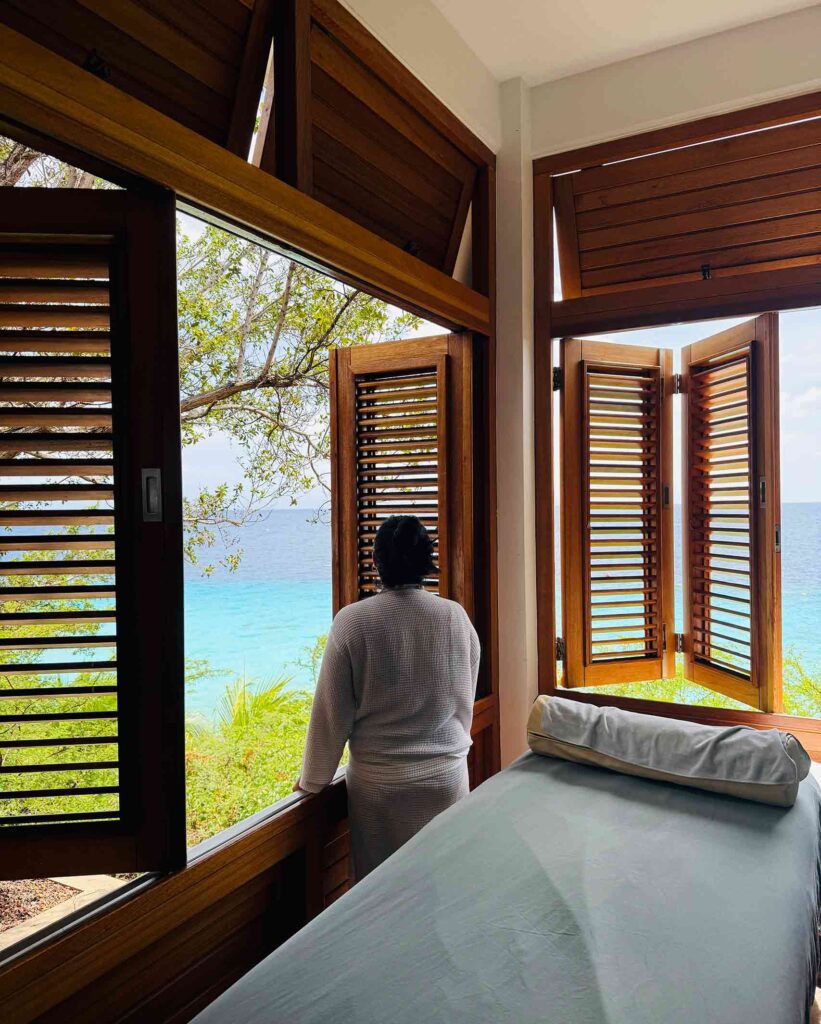
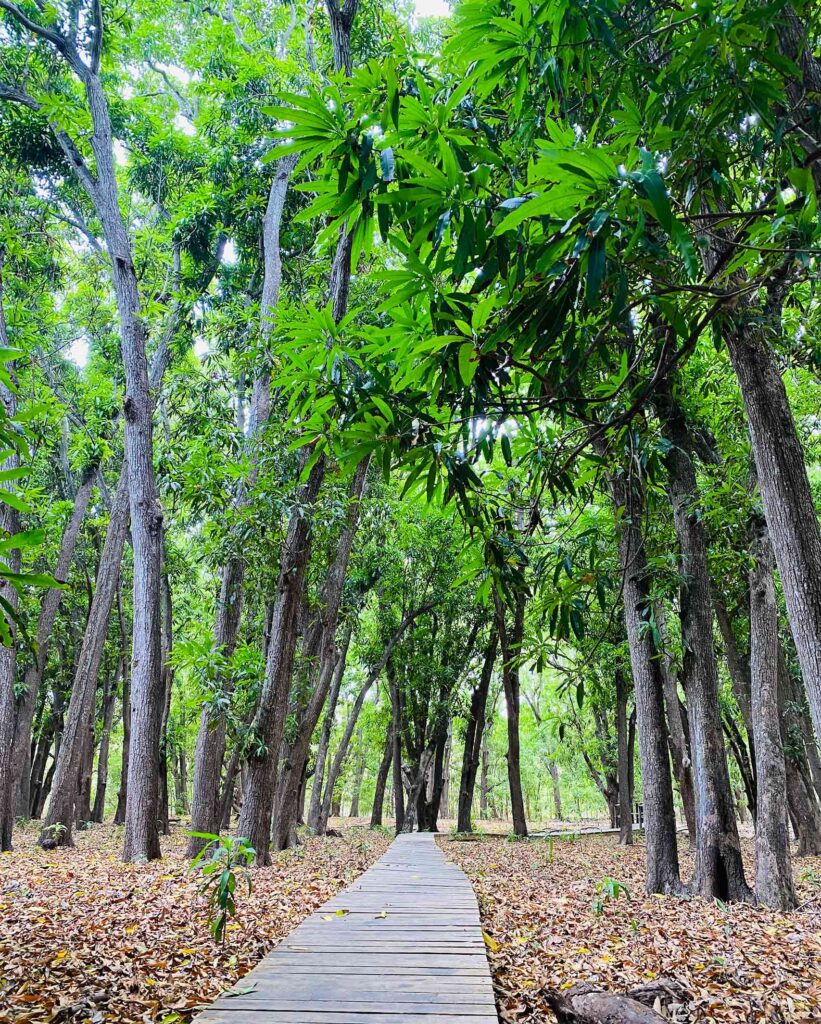
For a comfortable beach day, I recommend Karakter Beach – it’s well-equipped (even a spa) and perfect for a relaxed experience. If you’re looking for ultimate luxury, Bida Beach Club at Baoase Resort is hard to beat. But when I truly want to disconnect, I head to Shon Mosa – a tiny, secluded cove on the west side of the island. No amenities, no crowds – just sand, sea and silence. It’s my sanctuary.
Then there’s the Hofi Mango, a sacred, grounding place. Stroll from the Poison Garden past the Wall of Freedom and into the ancient mango grove. Hike your way up to the Hand of God sculpture by local artist Giovanni Abath, a stunning piece forged from industrial metal and spiritual vision. Afterwards, recharge at Kultura Kòrsou, where you can savour authentic island flavours – like fresh octopus and tender goat – crafted with locally sourced ingredients.
Don’t miss a day trip to Klein Curaçao – a small, uninhabited island with powder-white sand and turquoise water, just an hour away by catamaran. It’s a favourite for snorkellers and kite surfers.
One Last Tip?
Rent a car. Curaçao rewards explorers.
Photography courtesy of Janice Tjon Sien Kie


